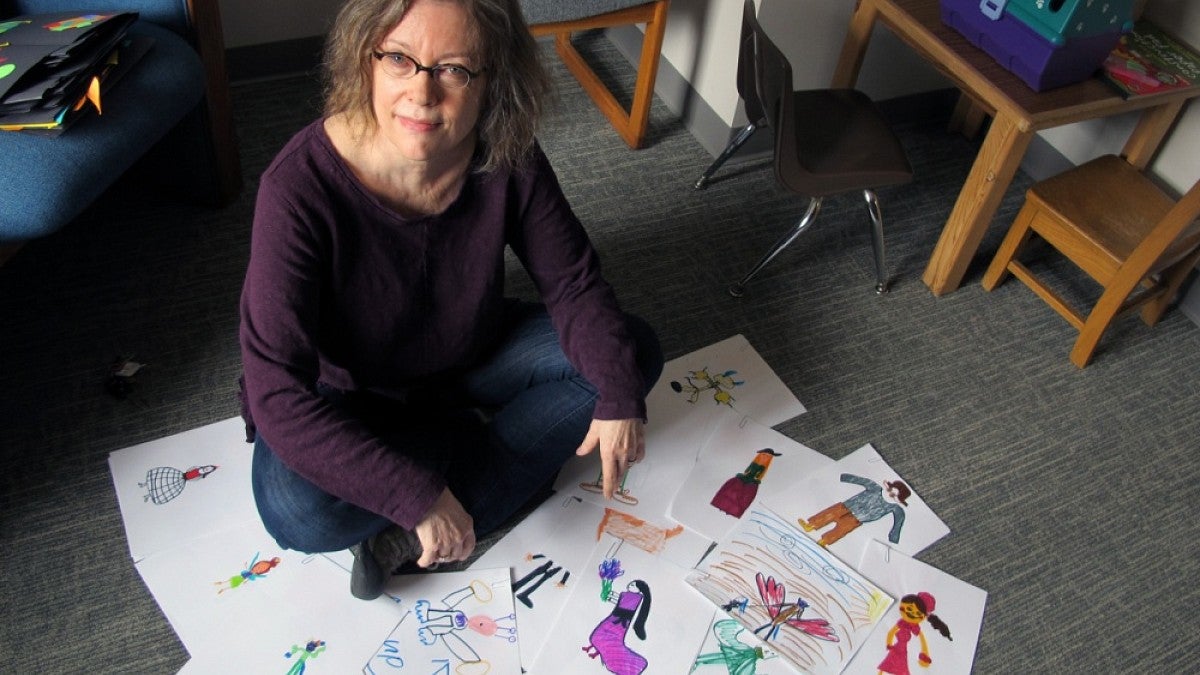Do you have a child with an imaginary friend?
UO psychologist Marjorie Taylor has studied for several years the many imaginary friends that young children say they have. Her work has drawn a lot of media attention.
Now there's a new splash of coverage: A three-part series on National Public Radio's Science Friday. Yes, it's a radio show, but this one has three videos.
In introducing the topic in an online article, Dive Into the World of Imaginary Friends, Science Friday producer Luke Groskin writes that the views on the topic have changed — that children with pretend friends are "no longer considered potentially disturbed loners, but rather highly social and creatively gifted kids."
The series looks at ongoing research in four developmental psychology labs: Taylor's Imagination Research Lab at the UO; Jacqueline Woolley's of the University of Texas; Tracy Gleason's at Wellesley College; and Stephanie Carlson's at the University of Minnesota. Carlson formerly was a doctoral student of Taylor's.
The three-part series covers what imaginary companions are like, how researchers collect information about them, why children create them, and how having an imaginary companion is related to cognitive and social development.
Accompanying videos include interviews with the researchers and footage of children talking about their imaginary companions and participating in laboratory tasks.
Taylor's more recent research, not covered in the Science Friday series, has rolled creativity into her exploration of children's imaginary friends.
In the photo, above, Taylor is shown surrounded by the depictions by 8-to-10-year-olds of people who cannot really exist. Initially, the children drew pictures of real people. So far, Taylor says, children who have had imaginary friends are able to be more creative in their illustrations of unreal beings than are children who have not had imaginary friends.
The videos of all three episodes are accessible via the link to the Science Friday article noted above.
—By Jim Barlow, University Communications


